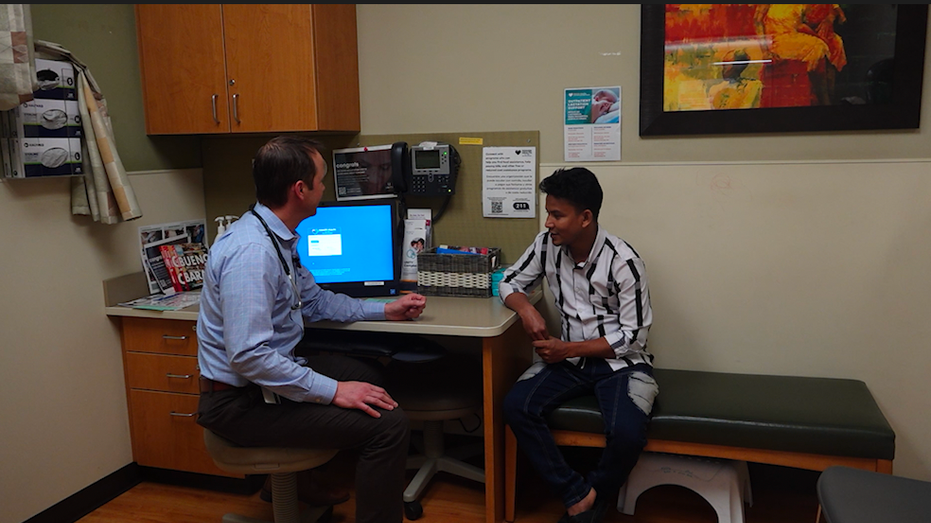Artificial Intelligence Revolutionizes Patient Care While Tackling Physician Burnout

Sarah Johnson
April 18, 2025
Brief
AI-powered ambient listening tools like Nabla and Dragon Copilot are transforming healthcare by streamlining clinical notes, reducing burnout, and improving doctor-patient interactions across the U.S.
Artificial intelligence is no longer just a buzzword in healthcare; it's actively reshaping the patient experience and streamlining physician workflow in surprising ways. Across the U.S., thousands of doctors have started using an AI tool called ambient listening, which records doctor-patient conversations to generate real-time transcriptions and detailed clinical notes without interrupting the natural flow of dialogue.
Dr. Daniel Kortsch, the associate chief of artificial intelligence and digital health at Denver Health, shared that since adopting this technology in late 2024, the dynamic between doctors and patients has improved markedly. "It really shifts the doctor-patient interaction, so they can actually just talk and be humans," he explained.
At Denver Health, the AI tool named Nabla kicks in with a simple click to transcribe consultations, even supporting multiple languages, then produces a summary to be added to the patient’s records. This innovation arrives amid a looming physician shortage—estimated between 57,000 and 72,000 doctors nationally this year—that escalates workloads and burnout risks.
Kortsch noted the tangible benefits: "We saw that our providers who used Nabla were working less at home. They had less ‘pajama time,’" a nod to the tiresome hours doctors often spend catching up on notes after hours. And yes, fewer late-night typing marathons are something many doctors—and their families—would applaud.
Microsoft is also stepping into the healthcare AI arena with Dragon Copilot, an ambient listening platform deployed currently in 600 healthcare organizations across several states. This tool aims to boost clinician well-being, enhance efficiency, and ultimately improve both provider and patient outcomes through accurate, speedy, and secure transcription capabilities.
Patients wary of AI should take comfort in knowing that doctors remain firmly in control. Kenneth Harper, head of Dragon Copilot at Microsoft, emphasizes, "Ultimately, the physician is still 100% in control… ensuring it is indeed the right thing happening for the patient." So, no rogue robots running the show just yet.
Importantly, the real winners here are the patients who benefit from doctors being more present during visits instead of distracted by note-taking. Looking ahead, Denver Health plans to expand ambient AI tools beyond doctors to nurses, psychiatrists, psychologists, and physical therapists, broadening the technology’s reach throughout healthcare.
After all, doctors didn’t sign up to be paper pushers. As Kortsch puts it, "People become doctors not because they want to write notes and fill out paperwork. It’s because they want that interaction — and ambient AI gives it to them." This blend of tech and human touch might just be the prescription healthcare needs in a world craving efficiency without losing empathy.
Topics
Editor's Comments
The idea of cutting down "pajama time" is a reality-check wrapped in humor — because nothing screams burnout like logging extra hours in your PJs. Ambient AI is proving it can rescue doctors from becoming weary typists and bring back the heart to healthcare. Just imagine: technology that lets humans actually enjoy being human during appointments. Finally, something worth clicking on!
Like this article? Share it with your friends!
If you find this article interesting, feel free to share it with your friends!
Thank you for your support! Sharing is the greatest encouragement for us.



